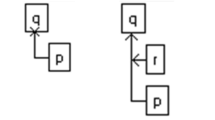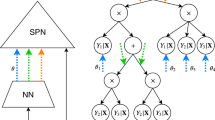Abstract
In this paper we discuss the application of a new machine learning approach – Argument Based Machine Learning – to the legal domain. An experiment using a dataset which has also been used in previous experiments with other learning techniques is described, and comparison with previous experiments made. We also tested this method for its robustness to noise in learning data. Argumentation based machine learning is particularly suited to the legal domain as it makes use of the justifications of decisions which are available. Importantly, where a large number of decided cases are available, it provides a way of identifying which need to be considered. Using this technique, only decisions which will have an influence on the rules being learned are examined.
Similar content being viewed by others
References
Aleven, V. (1997). Teaching Case-Based Argumentation Through a Model and Examples. Ph.D. thesis, University of Pittsburgh
Bench-Capon, T. (1991). Knowledge Based Systems and Legal Applications, Chapt. Knowledge Based Systems Applied To Law: A Framework for Discussion, 329–342. Academic Press
Bench-Capon, T. (1993). Neural Nets and Open Texture. In Fourth International Conference on AI and Law, 292–297. ACM Press: Amsterdam
Bench-Capon, T. and Coenen, F. (2000). An Experiment in Discovering Association Rules in the Legal Domain. In 11th International Workshop on Database and Expert Systems Applications, 1056–1060. IEEE Computer Society: Los Alamitos
Borges, F., Borges, P. and Bourcier, D. (2002). A Connectionist Model to Justify the Reasoning of a Judge. In Proceedings of Jurix, 113–122. IOS Press
Bratko, I. and Možina, M. (2004). Argumentation and Machine Learning. In Deliverable 2.1 for the ASPIC project
Brüninghaus, S. and Ashley, K. D. (1999). Toward Adding Knowledge to Learning Algorithms for Indexing Legal Cases. In ICAIL ’99: Proceedings of the 7th international Conference on Artificial Intelligence and Law, 9–17. ACM Press: New York, NY, USA
Cestnik, B. (1990). Estimating Probabilities: A Crucial Task in Machine Learning. In Proceedings of the Ninth European Conference on Artificial Intelligence, 147–149
Clark, P. and Boswell, R. (1991). Rule Induction with CN2: Some Recent Improvements. In Machine Learning – Proceeding of the Fifth Europen Conference (EWSL-91), 51–163. Berlin
Clark P. and Niblett T. (1989). The CN2 Induction Algorithm. Machine Learning Journal 4(3):261–283
DeJong G. and Mooney R. (1986). Explanation-based Learning: and Alterative View. Machine Learning 1:145–176
Edvards L. (1995). Modelling Law using a Feminist Theoretical Perspective. Law, Computers and Artificial Intelligence 4:95–110
Groothius, M. and Svensson, J. (2000). Expert System Support and Juridical Quality. In Jurix, 1–10. IOS Press: Amsterdam.
Johnston, B. and Govenatori, G. (2003). Induction of Defeasible Logic Theories in the Legal Domain. In Ninth International Conference on AI and Law, 204–213. ACM Press: Edinburgh
Mitchell T., Keller R. and Kedar-Cabelli D. (1986). Explanation-based Generalization: A Unifying View. Machine Learning 1:47–80
Zeleznikow, J. and Stranieri, A. (1997). Knowledge Discovery in the Split Up Project. In Proceedings of the Sixth International Conference on AI and Law, 89–97. ACM Press: New York
Acknowledgements
This work was carried out under the auspices of the European Commission’s Information Society Technologies (IST) programme, through Project ASPIC (IST-FP6-002307).
Author information
Authors and Affiliations
Corresponding author
Rights and permissions
About this article
Cite this article
Možina, M., Žabkar, J., Bench-Capon, T. et al. Argument Based Machine Learning Applied to Law. Artif Intell Law 13, 53–73 (2005). https://doi.org/10.1007/s10506-006-9002-4
Published:
Issue Date:
DOI: https://doi.org/10.1007/s10506-006-9002-4




